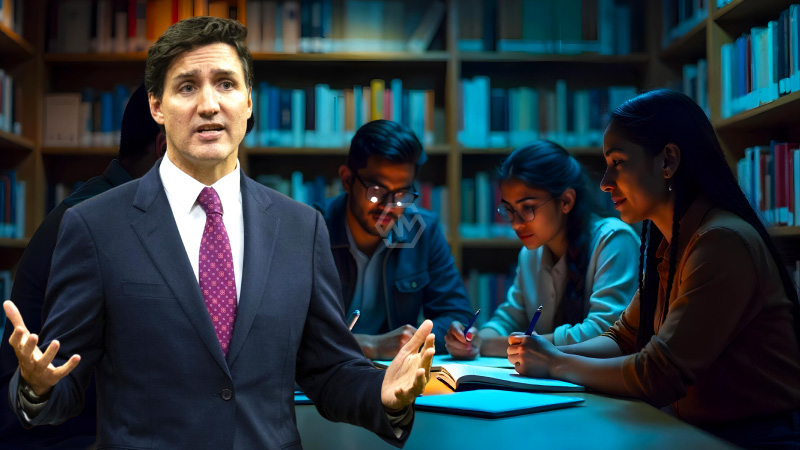- Worries Over Job Opportunities: Indian students express anxiety about tightening work visa regulations affecting their job prospects post-graduation.
- Political Climate: The upcoming Canadian federal election raises fears about rising anti-immigration sentiments from the Trudeau administration.
- Family Sentiment: Parents are reconsidering their investment in Canadian education due to uncertainties surrounding immigration policies.
Amid rising political tensions as Canada approaches its federal election, many Indian students are increasingly concerned about changes to immigration policies that could impact their study and work prospects.
The focus on immigration has created a palpable sense of unease among students and their families. Parents like Monica from Karnal, who have invested heavily in sending their children abroad, worry that tightening visa rules may jeopardize their children’s job prospects and, by extension, their financial investments.
Indian Students in Canada: Navigating Uncertainty Amid Immigration Policy Changes
Recent shifts in Canadian immigration policies have heightened concerns among Indian students, particularly regarding work visa regulations and job opportunities post-study. With a significant portion of international students hailing from India, the anticipated reduction in permanent residency admissions has left many feeling uncertain about their future in Canada. This anxiety is further exacerbated by changing criteria for the Post-Graduation Work Permit (PGWP), which has made securing employment increasingly complex.
As families grapple with these uncertainties, some experts believe that the evolving landscape presents an opportunity for students to adapt to market demands. They suggest that educational programs in Canada are being aligned with job market requirements, potentially increasing transparency regarding employability. However, for students who have invested time and resources into their education, the prospect of navigating a more stringent immigration process is daunting, leading to increased vigilance and questions about their options.
Current students, like Manpreet, share experiences of frustration with the bureaucratic delays in securing work permits and permanent residency. Many students feel that these challenges may be compounded by the current political climate, which appears less welcoming than in previous years. This sentiment is echoed by new applicants, who are increasingly questioning the implications of these policy changes on their future careers in Canada.
As political tensions between India and Canada continue to evolve, students are urged to remain informed about changes in immigration rules while also seeking support from educational consultants. The path forward may require greater adaptability, but many believe that Canada can still offer valuable opportunities for international students willing to navigate its complexities.
In conclusion, as Indian students in Canada face heightened uncertainty regarding their future due to shifting immigration policies, the need for clarity and support is more critical than ever.
“Two of my daughters are already in Canada…My youngest daughter is also planning to head to Canada next year…If the government



